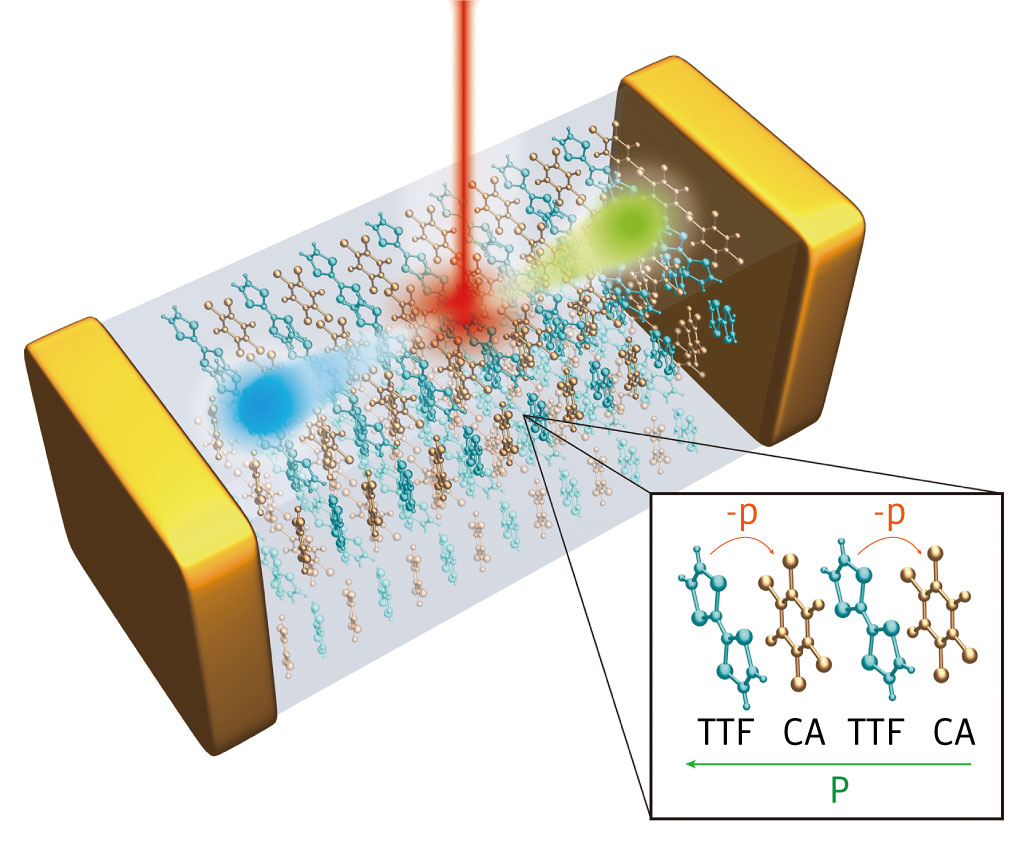A group of scientists at Japan’s RIKEN Center for Emergent Matter Science is developing a new quantum-mechanical process to extract current from solar cells in a more efficient way.
The researchers have used ferroelectric organic molecules to solve the problem of the lack of ‘inversion’ symmetry of several semiconductor materials, as these spontaneously separate their positive and negative charges; a task that oxide ferroelectrics cannot achieve, because their atoms are flipped about the center of the repeating unit.
For the latter, light-induced transitions of charges to excited states become unbalanced and, as a result, a ‘shift current’ along a specific crystal direction is created. “This shift current propagates rapidly and with less energy loss than a current generated by applying an electric field. But shift currents usually generate insufficient photovoltaic power for practical uses,” the research team said.
The scientists have developed an organic ferroelectric with strong quantum polarization to explore its shift-current capabilities. According to them, this is made of alternately stacked tetrathiafulvalene (TTF) and p-chloranil (CA) aromatic rings. It undergoes instantaneous charge separation when cooled to around −200 degrees Celsius, and is particularly sensitive to sunlight.
“Most ferroelectric materials need light with energy in the ultraviolet region to excite carriers over a large band gap,” said the project coordinator Masao Nakamura. “With TTF–CA, the band gap is narrow and responds to visible and infrared light, which is really important for applications like solar cells,” he went on to say.
The research group believes that the shift-current effects in TTF–CA are so sizeable, that they can be used as a technology platform to transfer this photoelectric conversion in next-generation PV devices.
This content is protected by copyright and may not be reused. If you want to cooperate with us and would like to reuse some of our content, please contact: editors@pv-magazine.com.




By submitting this form you agree to pv magazine using your data for the purposes of publishing your comment.
Your personal data will only be disclosed or otherwise transmitted to third parties for the purposes of spam filtering or if this is necessary for technical maintenance of the website. Any other transfer to third parties will not take place unless this is justified on the basis of applicable data protection regulations or if pv magazine is legally obliged to do so.
You may revoke this consent at any time with effect for the future, in which case your personal data will be deleted immediately. Otherwise, your data will be deleted if pv magazine has processed your request or the purpose of data storage is fulfilled.
Further information on data privacy can be found in our Data Protection Policy.